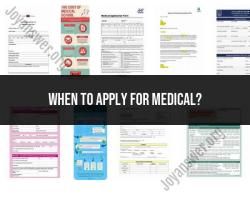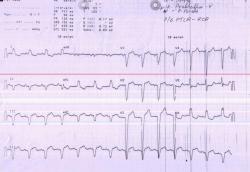How to become a certified medical interpreter in California?
Becoming a certified medical interpreter in California involves several steps to ensure that you meet the state's requirements for providing language interpretation services in healthcare settings. Here are the steps to become a certified medical interpreter in California:
1. Meet Language Proficiency Requirements:
- You must be fluent in English and the target language(s) for which you want to become a medical interpreter. Your language skills should be at a high level, as you will be required to accurately convey complex medical information.
2. Complete a Medical Interpreter Training Program:
- Enroll in a recognized medical interpreter training program that meets California's standards. The training program should be at least 40 hours in length and cover essential topics such as medical terminology, ethics, cultural competency, and interpreter roles and responsibilities. Ensure that the program is accredited or approved by a reputable organization, such as the Certification Commission for Healthcare Interpreters (CCHI) or the National Board of Certification for Medical Interpreters (NBCMI).
3. Gain Practical Experience:
- It's essential to gain practical experience as a medical interpreter. Many training programs offer opportunities for supervised practice. You can also seek internships or volunteer positions in healthcare settings to build your skills and confidence.
4. Choose a Certification Organization:
- Decide whether you want to pursue certification through CCHI or NBCMI, both of which are nationally recognized certifying bodies for medical interpreters. Research their specific requirements and choose the one that aligns with your career goals.
5. Pass the Certification Exam:
- Register for and successfully pass the certification exam offered by your chosen certifying organization. The exam typically includes written and oral components to assess your language proficiency, medical knowledge, and interpreting skills.
6. Apply for Certification:
- After passing the certification exam, submit your application for certification to the respective organization. Be prepared to provide documentation of your education, training, and work experience.
7. Maintain Certification:
- Certified medical interpreters are required to maintain their certification through ongoing professional development and continuing education. Fulfill the requirements specified by your certifying organization to keep your certification active.
8. Familiarize Yourself with State Regulations:
- California has specific regulations related to medical interpretation services, including language access in healthcare. Be aware of these regulations and any updates to ensure compliance in your practice.
9. Seek Employment or Contract Opportunities:
- Look for job openings or contract opportunities as a certified medical interpreter in healthcare facilities, hospitals, clinics, or other relevant settings. Consider joining professional associations to network and access job listings.
10. Stay Informed and Improve Skills:- Stay updated on medical advancements, industry best practices, and cultural competence. Continuously work on improving your interpreting skills and expanding your medical knowledge.
Remember that becoming a certified medical interpreter is a significant achievement that reflects your commitment to providing high-quality language access in healthcare. Certification can enhance your job prospects, credibility, and earning potential in this field. Be sure to stay informed about any changes in certification requirements or regulations in California to ensure that you are in compliance throughout your career.
Certified Medical Interpreter in California: Requirements and Process
To become a certified medical interpreter in California, you must meet the following requirements:
- Be at least 18 years old
- Have a high school diploma or equivalent
- Complete a 40-hour medical interpreter training program
- Pass a written and oral certification exam
The following organizations offer certification for medical interpreters in California:
- National Board of Certification for Medical Interpreters (NBCMI)
- Certification Commission for Healthcare Interpreters (CCHI)
To become certified by the NBCMI or CCHI, you must meet the eligibility requirements and pass the written and oral certification exams.
California-Specific Certification: How to Become a Medical Interpreter
To become a certified medical interpreter in California, you must follow these steps:
- Choose a certification organization. The two most widely recognized certification organizations for medical interpreters in California are the NBCMI and CCHI.
- Meet the eligibility requirements. The eligibility requirements for each certification organization vary slightly. Be sure to review the eligibility requirements carefully before you apply to take the certification exams.
- Apply to take the certification exams. Once you have met the eligibility requirements, you can apply to take the certification exams. The application process for each certification organization also varies slightly. Be sure to follow the instructions on the certification organization's website carefully.
- Prepare for the certification exams. The certification exams are challenging, so it is important to prepare thoroughly. There are a number of resources available to help you prepare for the exams, such as study guides, practice exams, and online courses.
- Take the certification exams. The certification exams are typically offered several times throughout the year. You can choose to take the exams at a testing center or online.
- Pass the certification exams. To become certified, you must pass both the written and oral certification exams. If you pass the exams, you will be awarded a certificate of certification.
Serving Diverse Communities: The Importance of Certified Medical Interpreters in California
California is a diverse state with a population that speaks over 200 languages. Certified medical interpreters play a vital role in ensuring that all Californians have access to quality healthcare, regardless of their language.
Certified medical interpreters help to bridge the communication gap between patients and healthcare providers. They ensure that patients understand their medical conditions, treatment options, and discharge instructions. Certified medical interpreters also help healthcare providers to understand patients' medical histories, symptoms, and concerns.
Certified medical interpreters are essential for serving California's diverse communities. They play a vital role in ensuring that all Californians have access to quality healthcare.
How to find a certified medical interpreter in California
If you are a healthcare provider in California, you can find a certified medical interpreter through the following resources:
- California Department of Health Care Services (DHCS)
- California Medical Association
- National Board of Certification for Medical Interpreters (NBCMI)
- Certification Commission for Healthcare Interpreters (CCHI)
If you are a patient in California, you can ask your healthcare provider for a certified medical interpreter. You can also contact the resources listed above to find a certified medical interpreter.













